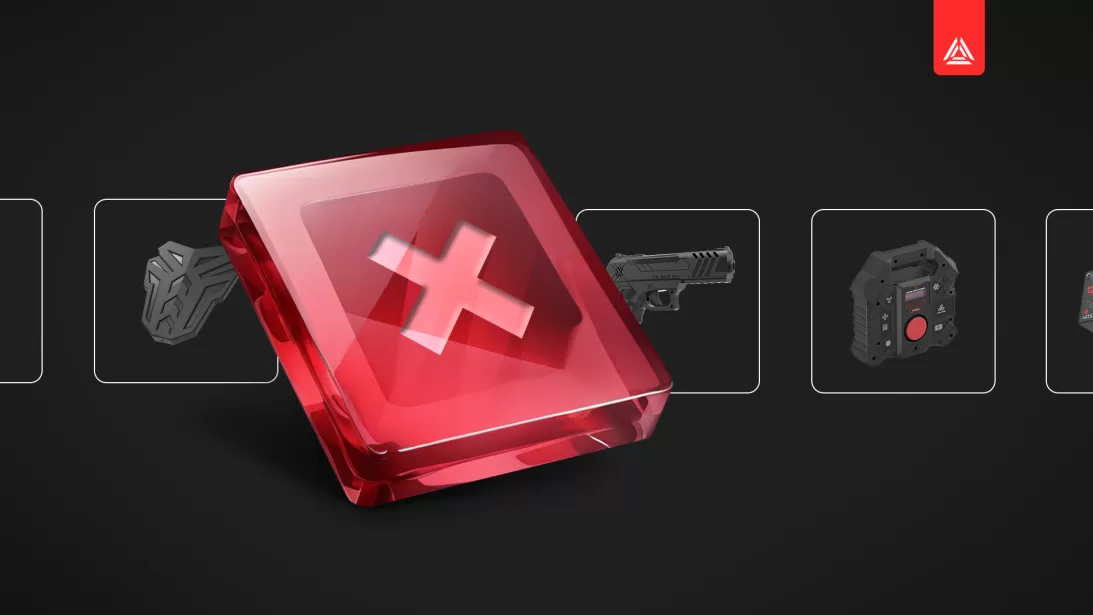Common Mistakes When Starting a Laser Tag Club
We've analyzed our clients' experiences and noticed certain patterns. When starting a laser tag club, 90% of owners make the same mistakes. And these mistakes directly impact the average check, profitability, and smooth operation. In this article, we examine what to pay attention to when launching and how to avoid typical errors.
Laser Tag is Not Just Entertainment
Often, a laser tag club is opened by young people using their last savings. They think of laser tag as a hobby, just fun. The very theme of the business also lulls the owner into a sense of it being purely recreational. While laser tag is inherently entertainment, opening a club is a full-fledged, real, and serious business. This means it must be treated as a business: calculate investments, profit, forecast the break-even point, and think about how to improve the game club's service.
For many, laser tag has become not just a business but a life's work. Many have opened full-scale military-tactical centers. With a serious approach, a game club is easily scalable, brings good profit, and provides moral satisfaction.
Too Wide an Assortment
A classic situation: we have 100 000 dollars and want to buy the entire assortment of game weapons and additional devices. This is one of the most common mistakes. LASERWAR equipment are devices with a huge number of functions. And at the start, you definitely don't need to buy everything you lay your eyes on.
To begin with, a basic set of rental blasters and a couple of additional devices are enough. Believe me, that will suffice for the first while. Only after you have studied the clients' needs and understood their desires should you buy something new.
It's better to treat equipment purchases as testing a hypothesis: you don't know anything about the upcoming work yet, you're only making assumptions. So, it's better not to allocate huge budgets for testing. After testing, any additional purchases will be more informed.
Launching Advertising and Managing Social Media
Most clients think that they should start managing social media and launch advertising only after the equipment has arrived, the renovation is finished, the staff is hired, and the venue is ready to open. This is the biggest misconception.
You need to manage social media from the moment you pay for the game kits. There are many options: create a group, design a logo, post news about the upcoming opening, make the first announcements in regional public pages. Talk about yourself everywhere you can.
As soon as the equipment is in your hands—announce the date of a technical opening. For the technical opening, invite local photographers, journalists, bloggers, and everyone who has an audience. They get great content in a new place, you get your first clients. Due to the novelty and reach, you won't have to look for people for the first game. Everyone will already know about you and be waiting for the official opening.
Staff Selection
A very important point. Staff is the face of the club. Based on experience, we can say: it's better to hire professionals. Animators, managers, SMM specialists—the higher the skill level, the better. Drop ideas like "I'll pay 100$ to a student and there will be profit." That will never happen; you'll just waste money. If only it were just money, as such "specialists" can often severely damage your reputation.
Try to offer competitive working conditions for future employees: some care about salary, others are interested in a new niche, and some simply love military-tactical games themselves. Find an approach for everyone and build a good team. The laser tag business is always a long game, so it's important to lay a good foundation.
Customer Communication
This point is usually closely related to the previous one. The club administrator and instructor simply must speak well and be able to win people over. A common situation: there's a good technician who understands the equipment perfectly, but often snaps at guests during games. There's no point in retraining the person and lecturing them. They are simply not suitable for this position. It's better to keep them, for example, in technical support. And for sales and consultations, hire those who can clearly explain the service and offer the client the best option.
Often, at the first stage, it's better for the club owner to answer calls themselves: you will better understand the questions clients frequently ask, you will know how best to answer, and you can gain experience that can later be passed on.
You can create a script for answering calls, but at a later stage of development. When all processes are generally set up, you have clients, and you need to polish the details and small things. Monitor communication and fight for every client.
Conclusion
The success of a big business is made up of small steps. It's important to take these steps in the right direction from the start. Learn from others' mistakes and launch without unnecessary problems. If you have any questions left, LASERWAR managers will always help with advice.


